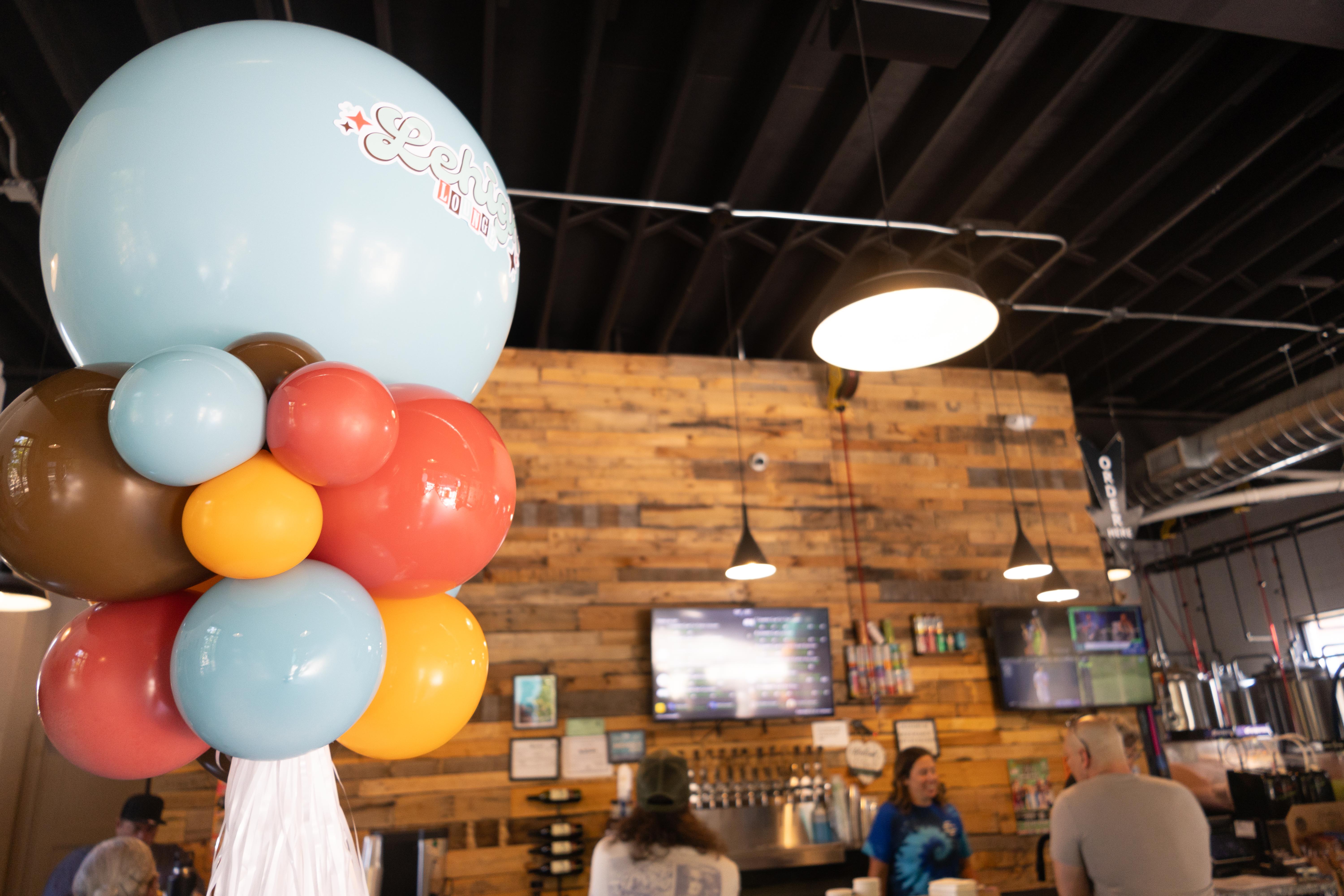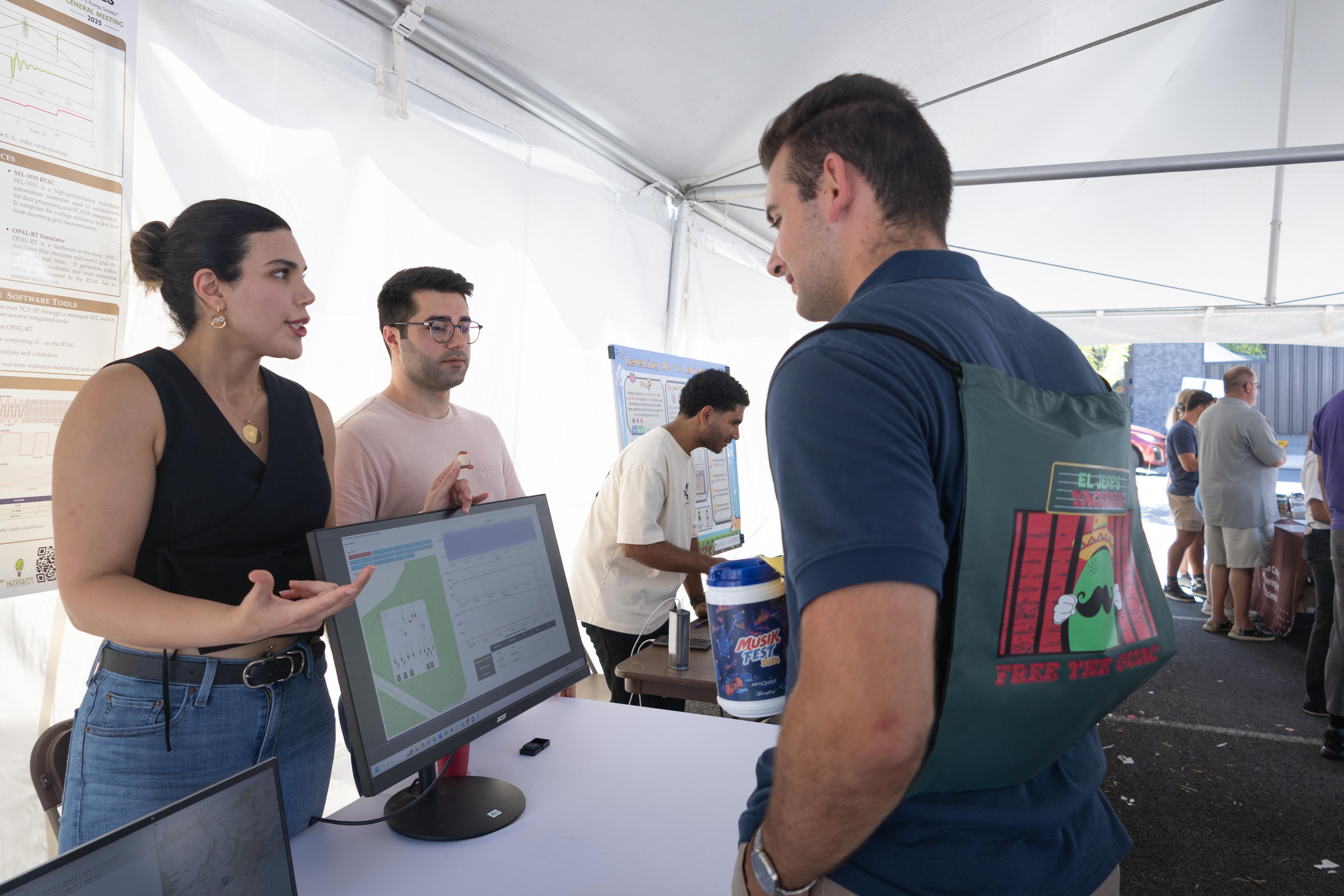
On August 8th and 9th, 2025, Lehigh University held its first annual Lehigh Lounge event at Country Club Brewing in Bethlehem, PA in conjunction with Musikfest. This event hosted various teams across Lehigh University aiming to showcase outreach initiatives and research. Four of Lehigh University’s National Science Foundation-sponsored Research Translation AcceLUrator (RTA) teams were in attendance, displaying their work.
Dr. George DuPaul manned the table for P.E.A.K. – Promoting Engagement with ADHD Pre-Kindergarteners. He provided visitors with a self-assessment asking about their personal experiences with distraction during day to day life, illustrating how common it is to have days where individuals struggle to focus. For those with ADHD, this is daily life. P.E.A.K. aims to help families with children with ADHD to better equip them with the skills necessary to navigate an ADHD diagnosis via a 10-week online training.
Mehdi Akbari and Maral Shadei’s work was represented at the event showcasing a simulation of their electricity grid monitoring technique. Their research, which uses SCADA integration for power grids, is focused on creating a simulation of cities to be able to predict and protect electrical grids. This is critical for emergency management.
Dr. Rosa Zheng’s underwater communication technology, SEA-GAL, offered a demonstration that showcased how their technology worked with a prototype underwater camera in a fishtank that captured live events at unprecedented speed. On one side of the fishtank, the transmitter recorded video of the participant standing in front of it. Then, via ultrasonic waves, the video was sent through the water. On the other side, a receiver collected the data and unscrambled it through the use of complex code before displaying it on another monitor.
Finally, MABLE (Mapping for Accessible Built Environments), in partnership with NaVIP (Navigation Solution for Visually Impaired People), demonstrated the use of camera technology to create an interior GPS map for disabled individuals to have navigable access to novel spaces.

Other projects represented in Lehigh Lounge ranged from student projects to faculty projects aimed at enhancing student learning and campus life. The activities were interactive, hands-on, creative, and engaging; offering opportunities to make bracelets, make digital magazines (or “zines”), engage in gamified learning, and even take a virtual tour of the Lehigh Valley’s attractions through VR headsets.
Jamie Morris, a guest who was visiting her friends in the area with her two daughters, commented that she was truly enjoying the time spent at the Lounge. She appreciated learning more about Lehigh University, as previously, her only knowledge was that her mother-in-law was one of Lehigh’s first female engineers back in the 70s. Learning more about the University through this outreach event was a fun experience for her and her daughters.
From community building to research sharing, the Lehigh Lounge was a big success.
